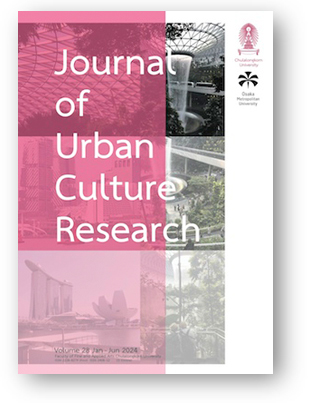Historical Narratives of the Eight Akan Clan Systems Using Museum Theater: The Case of Prempeh II Jubilee Museum, Ghana
DOI:
https://doi.org/10.14456/jucr.2024.8Keywords:
African Art & Culture; Akan Clan Systems; Cultural Objects; Museum Theater; Museum Engagement; GhanaAbstract
There have been several calls from diverse stakeholders in the museum sector in Ghana for creative programs that enliven the cultural objects in a museum’s holding. This study aimed at exploring the use of museum theatre as an intervention to enhance the museum experience of visitors at the Prempeh II Jubilee Museum, a popular museum in the Ashanti Region of Ghana. We produced The Linguist Staff, an interactive drama to present the historical narratives of the eight Akan clan systems. The study was carried out using arts-based research under the qualitative approach with observer-as-participant and semi-structured interviews as data collection tools. Data were analyzed using qualitative thematic analysis. Our findings revealed that museum theatre could potentially improve learning while enhancing the understanding of museum objects. The study contends that museum theatre when used tactfully by museum management could be a very useful intervention in increasing visitors’ experience and engagement.
Downloads
Published
Versions
- 2024-07-07 (2)
- 2024-06-24 (1)
How to Cite
Issue
Section
License

This work is licensed under a Creative Commons Attribution-NonCommercial-NoDerivatives 4.0 International License.
Authors authorize the JUCR to publish their materials both in print and online while retaining their full individual copyright. The copyright of JUCR volumes is retained by Chulalongkorn University.
The views and opinions expressed herein are those of the individual author(s) and do not necessarily reflect the policies or opinions of the Journal (JUCR), it editors and staff, Chulalongkorn University, or Osaka Metropolitan University.








